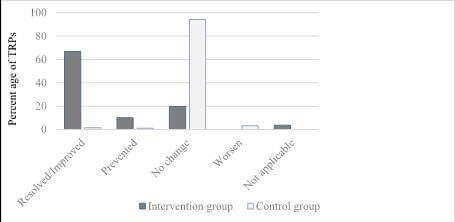As global political conflicts continue to increase, more and more refugees are facing urgent challenges such as the unavailability of proper medical care. Many of the Syrian refugees now living in Jordan (the entire group accounts for one-tenth of that country’s population) are struggling with at least one chronic disease, placing tremendous strain on existing health and humanitarian resources as a result. A new study published in Research in Social and Administrative Pharmacy demonstrates that pharmacists can play a vital role in closing treatment gaps for managing chronic health conditions among this underserved population.
“Refugees around the world suffer multiple and complex health issues while health access is limited. This study provides important information not only regarding the health of refugees, but regarding the vital role that can be played by pharmacists in this emerging field,” commented the study’s lead investigator, Iman A. Basheti, Department of Clinical Pharmacy and Therapeutics, Faculty of Pharmacy, Applied Science Private University, Amman, Jordan, and Faculty of Pharmacy (Honorary Professor), The University of Sydney, Australia.
The study identified the type and frequency of treatment-related problems (TRPs) for this population and explored the impact of a pharmacist-delivered Home Medication Management Review (HMMR) service on resolving the identified TRPs. Significant differences between the intervention and control groups were found with regards to TRPs’ outcomes at follow-up. The percentage of TRPs resolved/improved in the intervention group was 66.8 percent compared to 1.5 percent in the control group. Furthermore, the percentage of “no change” in the TRPs was found to be 19.7 percent in the intervention group compared to 94.1 percent in the control group.
This single-blinded randomized controlled clinical study was conducted between May and October 2016 in three main cities in Jordan (Amman, Mafraq, and Zarqa), where the majority of Syrian refugees reside. The 109 patients who took part in the study were recruited from physicians’ clinics allocated for the refugees, had at least one chronic condition (more than half had hypertension and diabetes; many had dyslipidemia, cardiac illnesses, and asthma), and/or took five or more medications with at least 12 daily doses. Participants evenly divided into intervention and control groups. All were interviewed during home visits, and when intervention group members reported TRPs, pharmacists counseled them about their illnesses, medications, and adherence to treatment. The pharmacists’ treatment recommendations were delivered to the physicians for approval, modification, or rejection. Pharmacists conveyed the approved changes to the patients, who then visited their physicians for confirmation and evaluation. The conditions, TRPs, treatment recommendations, and outcomes were classified and assessed to measure the success of the interventions. This protocol was based on an Australian HMMR model.
A large majority of the patients and physicians involved indicated satisfaction with the HMMR service provided through this study. Nearly 80 percent of the patients expressed positive reactions to the friendliness/courtesy of the pharmacists, clarity of information provided, level of knowledge, and quality of counseling/education they received, and amount of time required for treatment. All of the physicians believed that the HMMR service was helpful, three-quarters of them said they believed it is feasible, and 62.5 percent were happy with the clarity of the pharmacists’ recommendations.
“The study confirms that the HMMR service can be translated and implemented for this special group population in Jordan, a developing country situated in a region of war and conflicts,” noted Dr. Basheti, who pointed out that 75 percent of the participating physicians believed such implementation was possible, with the caveat that professional remuneration is provided. This comes in line with the WHO recommendations supporting the implementation of the recently published report by the High-Level Commission on Health Employment and Economic Growth, established by the United Nations Secretary in March 2016, and calling for “ambitious solutions to ensure that the world has the right number of jobs for health workers with the right skills and in the right places to deliver universal health coverage.” Preparing a skilled global health workforce that can deliver healthcare services in crises and humanitarian settings was also specified.


